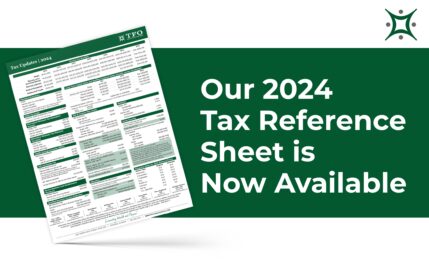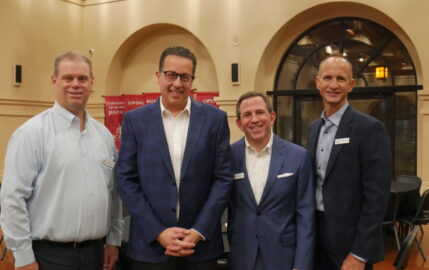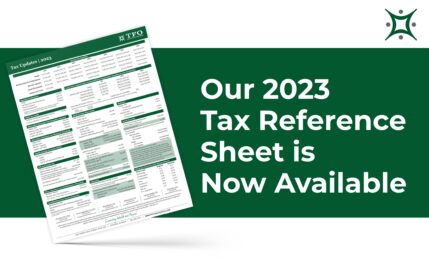
New Partners Announced at TFO Family Office Partners
Over the past 10 years, we have been committed to providing our client families with exceptional service and care while helping them connect their wealth and purpose. To help fulfill that promise, our talented team has built a culture that celebrates each colleague’s unique attributes, fosters teamwork, and embraces our core values.

Our 2024 Tax Reference Sheet is Now Available
Our 2024 Tax Reference Sheet is now available. This resource is being provided to allow you quick access to tax-related data points that may impact you over the 2024 tax year.

You Never Know
The holiday season is officially upon us, and with it comes our annual opportunity to gather with family and friends and share joy with those we love. If you’re anything like me, those family gatherings also provide a great opportunity to smile and raise a glass to fond memories and funny stories about loved ones who are no longer with us.

2023 Year-End Planning: Control The Things You Can
As we head for the year’s home stretch, there is a host of planning items you should consider as well as some general information you should be aware of for the coming year.

We Hosted a Special Evening with Bestselling Author Ron Lieber
We were thrilled to recently host best-selling author and New York Times Columnist Ron Lieber at Brophy College Preparatory. Ron spoke to our client families and Brophy parents on the topic of “Raising Kids Who Are Grounded, Generous, and Smart About Money.”

Our 2023 Tax Reference Sheet is Now Available
Our 2023 Tax Reference Sheet is now available. This resource is being provided to allow you quick access to tax-related data points that may impact you over the 2023 tax year.

It’s Your Money…Who Decides How Your Charitable $$ Will Be Spent?
When you give $100 to your favorite charity, you are probably not overly concerned about how your donation is spent, as long as it advances the mission of the charity. On the other hand, if you are making a large donation, it is more likely that you have specific goals in mind, whether to fund a particular program or support another endeavor. This desire to specify exactly where your donation dollars will go may jeopardize your ability to claim an income tax deduction. Therefore, proper planning is essential.

New Partners Announced at TFO Family Office Partners
Over the past 10 years, we have been committed to providing our client families with exceptional service and care while helping them connect their wealth and purpose. To help fulfill that promise, our talented team has built a culture that celebrates each colleague’s unique attributes, fosters teamwork, and embraces our core values.


Ready to create your wealth and purpose plan?
Getting started is easy. Set a time to talk.
Let’s Talk
